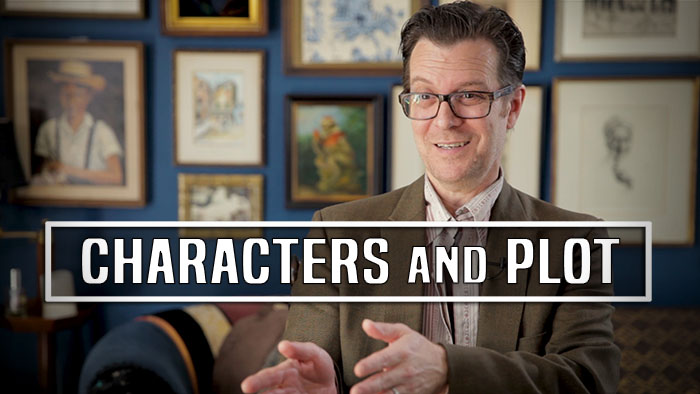
Watch the video interview on Youtube here
Film Courage: How do you feel about the quality of storytelling you’re seeing today?
Jack Perez, Filmmaker: That’s a good question. How do I feel about the quality? I don’t know? I’m not really attracted to a lot of new stuff. I think because I’ve seen a lot of it before and that’s just my personal thing. I think at this point it’s just an age thing and it’s a result of being a film nerd because when you consume as much cinema as I have in my lifetime you have seen (in most cases) the best iterations or story or genre already.
So when I see something new that just manages to be good execution or a well-executed story that I’ve already seen it’s not enough for me already. So I find myself going back to the films that have really changed my life, that really did it best because I want to be nourished in that way. It’s not enough for me to see something that is just a really good yarn that was well-directed and well-produced even though that’s a monumental feat (any filmmaker will tell you that making a good movie is a miracle).
But for me personally I tend to look to the past for the inspiration because I feel like in most cases it was done best and that doesn’t mean that I’m resistant to somebody showing me something that is truly brilliant because I would welcome that. If somebody showed me something that was earth shatteringly brilliant better than anything else then I would be like be like “Thank you!” And I want to see that stuff and I’m sure it’s out there, I’m sure it’s out there. I just haven’t seen anything lately.
Film Courage: Well I know THE HANDMAID’S TALE, it was a movie with Elizabeth McGovern, was it the eighties I think? Or early nineties was it?
Jack: Yes? The movie? You mean the original HANDMAID’S TALE?
Film Courage: And so now…now…it’s got a whole new life to it and they are spoofing it on Saturday Night Live. But back then I don’t know if I had actually heard a lot about it?
Jack: I think it was in the eighties. I was actually an intern at the production company where they were making that movie. I remember Xeroxing…f*cking up the Xerox. I forget who was the director of that, a German director? But anyway it was in New York City, I was like a PA in the office and they were having this special lunch meeting or something and I was in charge of getting the new draft together and I was like printing this thing out and it was just jammed in the printer and I ran over to 21 or wherever they were having dinner and I remember giving it to the producer and it was like all the pages were out of order and he was looking at me judgmentally and I was like “I’m f*cked, I’m never going to work in this business again.”
A good story that a filmmaker or a writer finds a way in or changes it or makes it more contemporary or more resonate or personal (whatever it is) I think that’s totally valid, too. But I haven’t seen much recently.
Film Courage: Now you’re doing it but it just doesn’t have the same appeal…but again is it a generational thing because you and I were just talking off camera about video discs and seeing even nineties films that had a different feel to it.
Jack: Well, I think that’s true. I talk to my students about this all the time. I think it’s an amazing age and it’s a horrible age. It’s amazing in the sense that anything that you want to see in the history of the world is available like that. Gone are the days of hunting for a revival house that is going to be showing THE THIRD MAN or SEVENTH SAMURAI or what have you or anything for that matter. It’s not that you have to hunt for a video store (not that they exist anymore) that is going to carry a special John Woo Hong King action thing, one that you can’t find. Everything is available at any given moment. That said there is so much material, there is so much available that I wouldn’t know where to begin. And I think that that’s a problem because unless there is somebody (a teacher or film geek parent) that is saying “Spend your time watching this…this…this and this before you watch this other stuff because that’s going to educate you, that’s going to make you a better filmmaker.” Then you’re bound to lose those great things and I’m not even talking about the obvious classics, I’m just talking about the minor films that are still better than the junk you see today, you’re never going to see them because there’s just too much to look at. I’m sort of losing the thread of the question but my feeling now is there is almost too much to see and it’s almost as if you need to graduate, that there is a prerequisite. You have to watch all this stuff if you want to be a filmmaker and then you can watch as much junk as you want that is out now.
Film Courage: Right well a lot of stuff seems over-processed, overproduced in some ways? And maybe just as a culture we’ve become use to it so if it’s not packaged that way we don’t want it?
Jack: I think you’re right, we were talking about this earlier. If social media is overproduced, if someone’s personal Instagram page with all it requisite filters and glamour and the tools of production in the hands of anybody, it raises this level, this standard of what’s acceptable to a professional level in such a way. But it also creates a certain artifice.
One of my favorite quotes that John Cassavetes said about Hollywood films in general is that “They are an advertisement for life.” That what he said “Hollywood movies in most cases are an advertisement for life. Whereas my films which are clearly, comparatively very rough and mistakenly looked upon as almost amateurish compared to that polish.” And mistakenly because that was by design because he was a professional. He made these films look a certain way. Because he was trying to get to something that was the opposite, he was trying to get at the messiness, the reality of life. Whereas Hollywood almost by definition tries to minimize that in favor of this gloss or polish or illusion. And that becomes the diet that you’re consuming. If you see something that is gritty or messy or whatever and I’m not even talking about the look. I’m talking about the content, where the content is not just this clearly, safe, defined thing. People may have a resistance to that where they may go “This is too much. I don’t want this. This is not the food I’ve chosen to eat.” But what does it do to your taste? It limits your taste to only want this candy and not something that is more substantial in that way…nourishing.
Film Courage: I was just watching part of THE STEPFORD WIVES.
Jack: Which one? The original.
Film Courage: Yes. And just like the long driving sequence beginning with all the credits and the classic early seventies music that we would hear all the time and now it sounds so wonderful but every show and movie had it. But just in terms of how quiet it is. There are just moments where nothing is happening every second, it’s breathing.
Jack: Yes and I’ve always said this and anybody will tell you this that the strength of a spike in story or movie where somebody goes crazy, there’s a lot of kinetic activity or surprise or whatever is directly related to the quiet that precedes it. In other words something is super loud or big relative to what preceded it. So that’s why in a horror movie (they learned this going back to the 1930’s) but if you have a very quiet almost nothing happening and then a huge scare, that scare becomes magnified.
Whereas if you have to maintain what is now the classic, Hollywood mantra of just a thrill every second, then that thrill every second becomes a plateau, you just become accustomed to it. It’s not going to hit you the same way then if you allowed for that quiet to proceed it. But that assumes that the audience…well it probably assumes that the producers are willing to allow that quiet to happen and not be “Oh sh*t! People are going to be bored, we have to do something exciting. We can’t have this length of quiet.” And that the audiences are willing to invest in that, be okay with that. And to say “This is not boring. This is interesting.” And then be the beneficiary of the result of that if something huge follows that because it will be huger because of it.
Question For The Viewers: What’s the best movie you’ve seen this year?

CHECK OUT JACK’S NEXT MOVIE ‘SEARCH & RESCUE’
Indiegogo
MORE VIDEOS WITH JACK PEREZ
https://bit.ly/29dr0rm
CONNECT WITH JACK PEREZ
IMDB
Twitter
Like this video? Please subscribe to our Youtube channel. Or love this video and want more? You can show additional support via our Youtube sponsor tab or through Patreon.
Advertisement – contains affiliate links:
Behold the beautiful and most breathtaking timeless romance poetry from one man to one woman. In this collection of fifty love poems, author and poet Epp Marsh III writes as fictional character Lance D. Wainwright to his love, Ruth. The masterfully crafted poems create a sense of safety, compassion, and true love in companionship, and reading them aloud is a wonderful way for two lovers to pass the night.
As the companion book of poetry to The Final Departure and a treasure of romantic words from one human to another, Lance D. Wainwright: Book of Poetry explores themes of love, romance, imagination, spirit, passion, intimacy, and yearning, and gives readers a deeper understanding of the connection between two lovers.

























